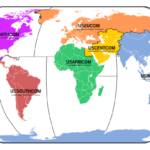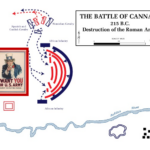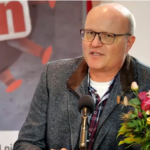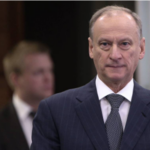By JÖRG WOLLSCHLÄGER | Tucker Carlson interviewed the beautiful political commentator Eva Vlaardingerbroek on his Today programme. Tucker astounds her with her descriptions of a bizarre quota system for the skin colour of concert-goers in the Dutch culture industry and the open racism towards her by the media. She describes her search for the truth and how resistance from the system only made her more persistent; she always received unconditional support and strength from her family. The subservience of Europeans to tyranny by their governments upsets her.
The following interview was recorded in the Fox News studio on 18.7. 2022 and transcribed and translated by Our Central Europe, further parts will follow. A short trailer can be seen on Eva’s Twitter account.
https://twitter.com/evavlaar/status/1538289420817801218
Ultra-liberalism led to a radical change in her thinking
TC: Welcome to Tucker Carlson today! Eva Vlaardingerbroek is a lawyer from the netherlands, she’s a legal philosopher. She joined us repeatedly on our nightime of our show. We first met her in Hungary were we were doing a documentary on Victor Orban. She is now in the United States, she is someone who was described by a Dutch newspaper as: -we are recording now- the stylish face of the radical right wing, so of course we wanted to meet her in person. And here she is. Great to see you!
EV: Great to see you! Thank you so much.
TK: I love that. And you are a handmaid of the far right.
EV: Now..a handmaid of whiteness. It’s worse, and then princess of the far right, oh I don’t even know. So many weird things.
TK: Many slurs, so they don’t like you. The media in your own country. Tell us who you are, where you are from, I got to hear!
EV: I’m 25, I’m Dutch, I’m a lawyer as you said. Well, I’m a political commentator, the stylish face of the right wing as they said, radical right win.
TK: Where did you grow up?
EV: I grew up around Amsterdam, in the Netherlands, so very close to the capital.
TK: The most liberal city in the world.
EV: Ja, definitively. And I think that’s why I am the way I am now.
TK: What did your parents do?
EV: My parents are both in the classical music industry. So, very left wing, very liberal.
TK: Of course. You were at odds.
EV: Which was not always easy for them.
TK: How did you wind up different from everybody else?
Quotas by skin colour for orchestra visitors
EV: I think both my father and my mother really appreciate western culture. Because obviously they are so close to it. The greatest things, western art, western culture has produced. So I think they just appreciate it for what it is. They see that these new rules, these new…the way that the government handles subsidizing or orchestras or museums and things with all these rules for how many different sexes you have in there. You know if the city.. all these weird new liberal, left wing identity politics. They really have been against all of that.
TK: They keep track of the skin colour of the visitor?
EV: Oh ja. Oh ja. Not just the people who play, the musicians, but also the audience. They will say you get less money from our funding from the government. If you don’t have a certain quota that you have to reach.
TK: In the audience?
EV: Oh ja. Ja ja.
TK: So its like full Nazi situation where they keep track of everyones race?
EV: They track your race, they track your sex, they track all of that absolutely. That’s also what I have noticed in the public debate. Whenever they talked about me. They always have no trouble talking about my blue eyes and my blond hair when they describe me. No, for sure.
TK: I think we gave that up after the second world war, where it was considered immoral for governments to track peoples genes, their ethnicity. So the Nazis kind of discredited that, that was my view growing up. That has changed. Obviously.
EV: That’s changed. That’s changed. And you can be very critical obiously when it’s white peoples. So when you talk about white people beeing arians. When you talk about minorities being in the front, the forefront that is a good thing. So, it kind of, they talk about it too. Now its time that we turn the table. Right so, thats how its been done before.
Democracy in the Netherlands a show
TK: So you grew up in this environment. From a traditional American perspective that’s a conformist society. That’s not an attack, but there a premium placed on cooperation and everyone getting along. Same views. Is that accurate?
EV: No. I wouldn’t say so, although I think that that is something you can still say about the Netherlands and if I see the way that they talk in my coutry about America and about the American debate. It’ s so polarized, you know you have only two parties and you have much more here, if that’s democratic then our country is, because we have- last that I counted we have 37 parties I think, that were on the list for you to choose from. But I don’t find that to be the reality whatsoever. The debate is even more harsher in the US in many ways and the opposition is less visible, less strong. In a way I think the debate at home is even worse, because it has so… people have the idea that they are in this fair balance, where there is really not.
TK: Because you have so many parties that it gives the illusion that there is a diversity of views. Most of the parties are all aligned with each other. They form blocks.
EV: They form blocks. After the elections all these talking points for neo-liberal parties just go out the window, that’s all for show. They go hand in hand with the left, it’s open borders its liberal policies. Of course we also have the European Union and that makes a lot of the laws that we are subjected to. And we can choose any of these people, that is not all of them, that make all these laws for us. They tell us.
TK: Beeing ruled by people you didn’t vote for is now called democracy?
EV: Ja, oh ja, they call it democracy. And people like me and people like you are threats to democracy. Because we are dissident voices. That’s their favourite way of dealing with us of course. They say, you’re not you know not another voice in the debate, no what you say is a danger to democracy, is misinformation. And they use a lot of legal instruments actually to crack down on peole like us. Because we don’t have a first amendment.
TK: How is that noticeable. You don’t have a first amendment.
EV: I think we..
TK: Do get people punished for speaking?
EV: Yes. You see people punished for speaking. I think.For example a very well known politician in the Netherlands on the right wing, Geerd Wilders, I don’t know if you ever heard of him.
TK: Of course.
EV: Ja. He has been convicted of hate speach. So you can see that even the establisment goes after politicians who dissent from beeing left wing, globalist,a rhetoric. When..legal means. And you can see that not just for politicians. But during Covid for example we’ve seen that beeing used against ordinary civilians. Oh yes. They will have task forces even a military task force in the Netherlands that is completely..that has this one job. And that is to crack down on free speech. And they will say that everything that goes against the governments narrative when it comes to Covid for example, forms a danger for society. Therefore its disinformation, we need to take it down. So..
TK: And they use force to do that?
EV: Well not…You probably have seen all the demonstrations that we had where the police used force against protesters. That they have done for sure. But not yet when it comes to freedom of speech, where they crack down on…They haven’t done that with force yet. But..
TK: What they had done is to stop doing something, the threat is inherent.
EV: Ja. And we don’t have guns, because like I said we don’t have a first amendment. But we surely don’t have a second amendment.
TK: So its not a free country.
EV: Its an illusion of a free country. All the things that I find important for a free democratic nation are not real. So if you are going to arrest, as a state arrest distance, you don’t have free speech. If you have politicians, first we had Geerd Wilders for example, but he is protected 24/7 because his live is not sure. Because he is always under threat of radical islamists that are also beeing imported by the same elites. And you have the state that comes after him. And prosecutes him for things that he says. I don’t think that you can talk of a real free nation, no.
TK: So what was is like to grow up with heterodox views, not agreeing with the regime in a country like the Netherlands.
Suppression of dissent in the education system
EV: Oh you notice that very early on. So I think that I have started noticing it from basically halfway from highschool when I started joining things like the debate club. I thought that I was a feminist, because I read a book from … a Somalian woman who was circumcized or mutilated I should actually say. Generically mutilated and I thought well that’s horrible. There are cultures in the world that don’t treat women the way we treat them. So I am not sure…I must be a feminist, 16 year old me thought. That is what feminists should fight against. And I found out very quickly that joining feminists groups that is not something you were allowed to talk about. That the feminists in the media did not think that wearing headscarfs or mutilation was a bad thing. No, you as a white woman have no right to talk about that. So I think..
TK: They said that out lound?
EV: Of course, ja I think throughout my life going to these types of clubs, going to meet feminists, also going to university thinking: now its the time for an academic, free debate and noticing first week basically that my teachers noticing what you’re saying, that’s not science. That is just opinion or that is a dangerous view or that is a dangerous thought. I think I have just gone from disillusion to disillusion.
TK: The people and the whole kind of system that you are describing is conveiing a message to most people that it’s not working. Disagreeing, just be quiet, just get in line.
EV: Yes.
TK: Because the consequences of being different are tough. So why did you decide not to obey?
EV: I think every single time that I endured that , every single time that I noticed that the system fougth back, it was more of a clou for me that I was on the right track. And I saw and I think someone like you see that all the time. They come down at you so strongly for things that..if you just listen to what they say its actually the complete opposite of what they preach. They say, oh we want a lot of young women come and speak out in the public debate. And to be active and the moment I did for the very first time.
TK: They attack you on the base of your skin colour.
EV: They say you are an aryan princess and you are a far right radical, we need …you pose a danger to society. And I thought to myself well, that can’t be right, so your very right. What they are doing is showing a clear message to the people. Few do this, they show you: this is what we will do to you. You speak out about the things we don’t like you to speak out about, we are going to come after you. And its a very cleat example to other young people or to anyone for that matter. You can go down that road without being reprimanded by the establisment. Ja.
Search for Truth
TK: What did your parents say?
EV: I am very very fortunate to have two parents who support me, no matter what. But I know that’s not the case for a lot of people. So for me, even in the hardest days, when, you know I had basically the entire political establishment come after me or and had friend who said I don’t want to be friends with you anymore for the things that you say. My parents were always there. So to have that save an secure home and foundation is basically what helped me throughout this.
TK: What an imposing attitude. What would be your guess as to the percentage of the Dutch population that roughly agrees with you?
EV: Oh, I think the percentage that agrees is much higher than what is reflected in the way they vote. That. So for example there was this survey I think, conducted in 1999 already. Where the Dutch population was asked about mass migration or immigration. And they said then that.. a large majority said that this is one of the biggest mistakes we ever made in Dutch history. And that was way before the refugee influx.
TK: What would have be a bigger mistake?
EV: Oh you know, they could have talked about a lot. A lot.
TK: Can you think of a bigger mistake.
EV: They are taking up New ….Amsterdam to the Brexit. …New York
TK: Very bright. A new deal on that. I don’t think they want it now though. I haven’t been there recently.
EV: I haven’t been there either, so we ‘re gone..
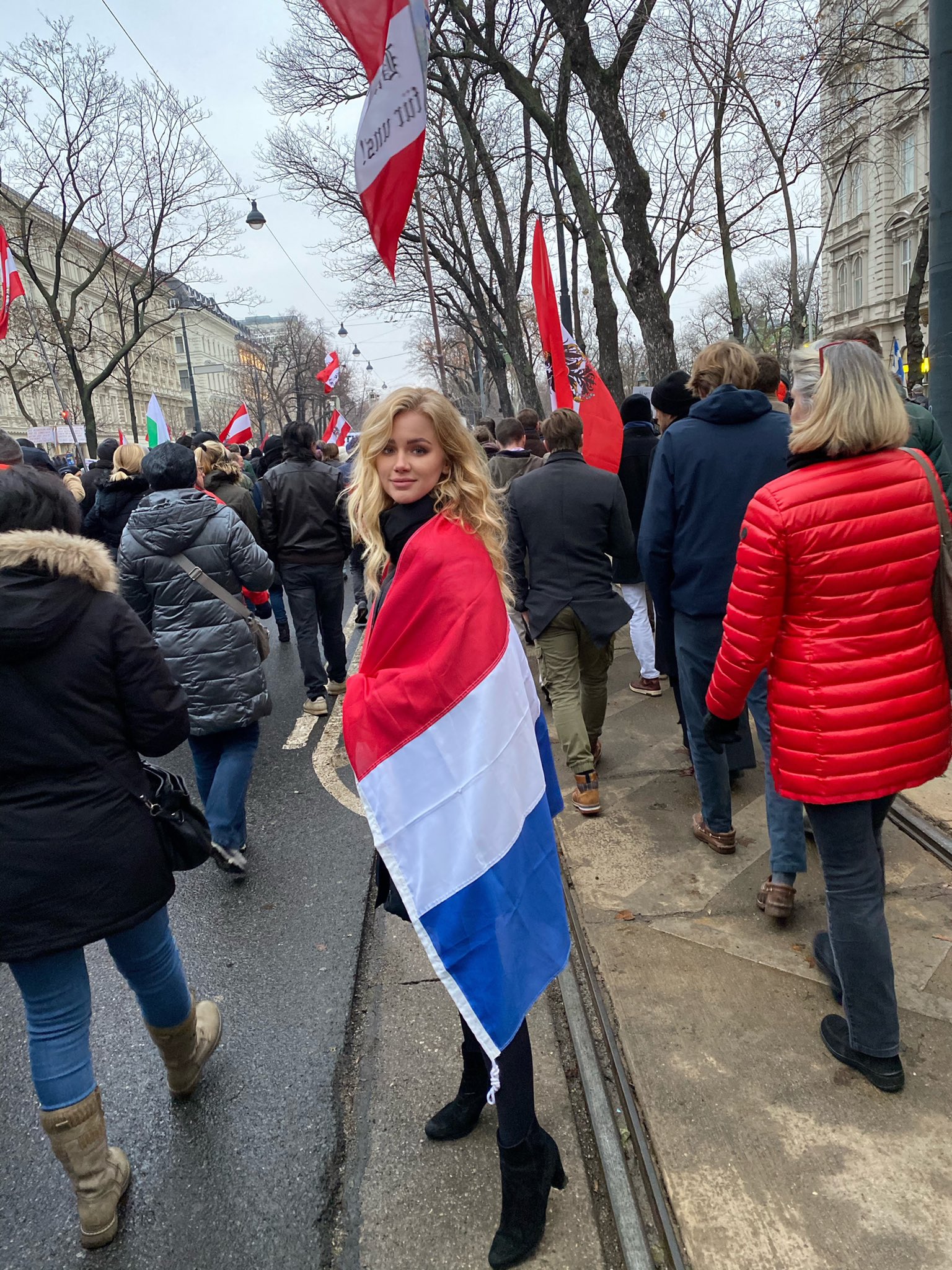
Mass migration changes country beyond recognition
TK: I am sure you would make your judgements on New York City. But ähem, what. How has mass migration changed society, changed the country?
EV: The Dutch society that has changed as a whole beyound recognition. At some places. So if you go to any major European city, just a little bit ..just outside of the historic center for example. In some of these parts you won’t know that you are in Europe any more. It would be a little Africa. And it has changed to such a degree that a young woman like me wouldn’t.. First of all you ‘re not advised to go out after dark alone. But there are certain area where you should just not go alone. Like whatsoever, because its too unsafe for you to go. And you see it in the way or we see who would inherit the native language in that areas. You wouldn’t hear a Dutch or you wouldn’t hear a Swedish, you would hear Arabic. You wouldn’t see the Dutch or Swedish language written, you would see signs in these languages, because…The government also communicates to these people in their own languages , because they go along with it all. So I would say ja, it really has changed our continent. Beyound recognition, as we made it very unsafe and we have lost in many ways our national and our continetal identity.
TK: So there is a penatly for saying…so why the hysteria, why the.. So living in a cohesive an safe society is the goal of everyone, no matter what colour you are and what language you. Everyone wants to live in a place that’s peaceful, where everyone gets along.
EV: So one should think.
TK: I think that’s German. Nigerias problems .. everyone knows what kind of problems.. but if one lives in a harmonious society. You’re homecountry has become less so, less harmonious, less sav, probably less prosperous too. Why can’t you say that out loud?
EV: You can’t say that out loud, because obviously, they say it goes against the policies that they have that the people who ruled our countries, the liberal elites, that ruled our countries for the last decades that …It goes against those policies. So you’re attacking them and that could threaten their power that’s why I think for sure.
TK: Yes.
EV: And the other thing is that it goes also against the world view that these people will have. And I think its a sort of an alliance of, a weird alliance you could almost say. between the neo-liberal, capitalist elite of Europe that is pro open borders, but for economic reasons and the left wing that says: Oh we should all live together, one world, one culture, we are all humans, we can handle this, you know dance around… rainbows. So that sort of alliance..
TK: But they don’t actuallly fit together, there is 99 % Han Chinese, Korea is overwhelmingly Korean. Bukina Faso is African. They don’t apologize at all. They are not saying China is too Chinese. They never mention that its fine. It’s only Europa.
EV: I think a lot has to do with the fact that we still live under the curse of the second world war. Evil as gotten a real, visible face in the collective memories of Europeans. It’s obviously under the nazi regime. So the white man is the problem. Patriarchal structures are the problem. Nationalism is the problem. So I think if you are like with me. If you are a blond woman on the right side, you’re immediately in that camp. And thats sort of the only thing people seem to think about our days. Ok, if you are here to represent these values we will have a second world war or a world war on our hands. So its that simple. Really that type of mindset.
TK: Well, that’s so mindless.
EV: It’s very mindless, but it’s a very good means to an end to silence dissidents. So its a very good way to stay in power.
TK: Ah. Was Europe liberated from the Nazis, but not the Chinese?
EV: No.
TK: It wasn’t . So it actually doesn’t make any sense.
EV: No.
TK: But its Europe specific. All counries in Europe and the English speaking world. Is not allowed to have..
EV: Europe for Europeans.
TK: Right. A cohesive society. So ahm.. ha What percentage you said the poll from the 1990s now thinks that mass migration brings peril to Europe?
EV: It depends per country. But in a society like France you would think that, you know, its much higher. There has been huge numbers of terrorist attacks ever since the migrant wave in 2015, that society has really been disintegrating in a way that you almost don’t see in any other country in Europe, maybe apart from Sweden for example. And I really hope this time that Le Pen would win the elections or that someone of her ilk brings about change.
TK: Yes.
EV: But it hasn’t happened.
TK: No.
Europeans’ docility to state abuse of power
EV: So I’m very worried about that, I think if I had to say one thing, that is the main difference to me at least beween America and Europe: It’s that we live under this type of tyranny and we don’t see it, because we don’t distrust our own governments. The European people are very docile in that sense. And again that’s reflected in our constitutions, no second amendment for us.
TK: Again, I am struck how none- sensical it is. So if you are drawing lessons from the second world war, I think it is worth doing that,sure, from the tyranny that descended over Europe. One of the lessons, the main would be, don’t trust your government. Politicians are not always telling the truth, sometimes they have bad intentions and the second lesson would be, don’t disarm you population, because then you are powerless.
EV: Right. We have the European Union, Tucker, don’t forget. For it’s not just our national governments, we have union of all these countries that came together because we want peace. That was the whole idea, you know behind the European Union and the people still buy that. So even though we have an ever growing union.
TK: Do they probaly think that?
Covid Segregation
EV: Oh ja, sadly I do. A lot of people when they talk about the European Union they do, even in the center right for example. They think about it in that way. They think that nationalism is a bad thing that needs to be eradicated, that leads to war. The European Union is here to protect us from going into that. Because that’s a lie that has been repeated so often and so loudly throughout the ..well basically all parts of society, especially in academia. That people have really started to believe it, don’t question it. So the idea that the government is not your friend, its not apparent to a lot of people and even during Covid when you could see how badly the government can treat its own citizens. And how soon…suddenly this idea of segregation based on medical records for example was accepted. It baffles me that people don’t see that.
TK: So you went in here for Covid?
EV: Absolutely. Stuck on my own.
TK: Tell us what you saw.
EV: Well we saw a crackdown on our human rights that’s unprecedented I would say since the second world war. Which is also something that is also absolutely prohibited to say. You can’t say that.
TK: Why?
EV: Because its all for your safety. It’s all for your health. There is no bad evil plan behind the way governments have treated us during this pandemic.
TK: Calling certain subsets of the population dirty and diseased. We haven’t seen that before in Europe did we? Probably?
EV: No, we haven’t. Macrons perception is that he wants to piss off everyone who wants to decide what they want to do with their body for themselves. No those people are not real citizens. And everybody just seems to glance over that. If you would hear that kind of rhetoric somewhere else in the world you would be sure that amnesty international would be sounding the alarm.
TK: Of course, especially in Europe. Again, if you say this minority of our citizens is dirty.
EV: Right.
TK: Don’t touch them.
EV: Dirty.
TK: How would that manifest itself?Were you in Amsterdam, you said Amsterdam…
EV: Yes. It manifests itself in, basically a year of lockdown. So that lockdown, in holland there was a curfew. So you couldn’t basically leave your house after 9 P.M. I’ ve been in Vienna to go to a protest when this was all reaching its peak, when they were trying to introduce mandatory vaccinations in Austria. There it even was so that there was a lockdown for the unvaccinated. I was out in Vienna, protesting against, well, this regime. It was basically illegal for me to be outside.


